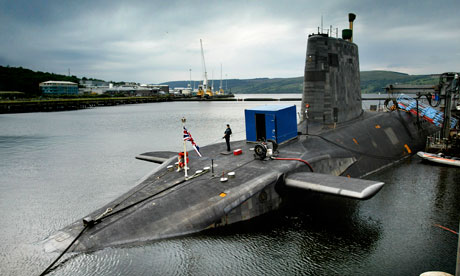Engineering failures on Trident submarine place crew at risk and raise doubts over whether missiles could actually be launched, says whistleblower.
A Royal Navy whistleblower has exposed a shocking catalogue of equipment failures, security breaches, and near-miss accidents on board HMS Vanguard, one of the Navy’s nuclear-armed Trident submarines.
William McNeilly, a 25 year old engineering technician, has published an account of a patrol on board HMS Vanguard on the internet (online here and available to download at the bottom of this article), describing in detail a series of alarming incidents and describing the submarine as being “in the worst of the worst condition”. His account not only puts safety standards in the Trident programme under the spotlight, but also brings into question HMS’s Vanguard’s ability to successfully fire its battery of missiles were the command to launch a nuclear attack ever given.
McNeilly’s dossier – an account of his first patrol on board HMS Vanguard – reveals that the ageing submarine was dogged by equipment failures during the patrol. Safety procedures were regularly disregarded, security procedures were casual, and secret information was accessible to unauthorised personnel.
He also alleges that safety proficiency exams were rigged and that, as a result of manpower shortages, key posts are filled with under-qualified staff.
McNeilly says he has published the account in order to alert the public to the “shockingly extreme conditions that our nuclear weapons system is in right now”, giving a grim warning that “it’s only a matter of time before one of the Trident submarines are lost”. I tried to make the changes from within”, he says, but “I expressed my concerns too many times without any action being taking”. He believes that most of his colleagues know that “the Trident programme is a disaster waiting to happen, but they never tell the public”.

